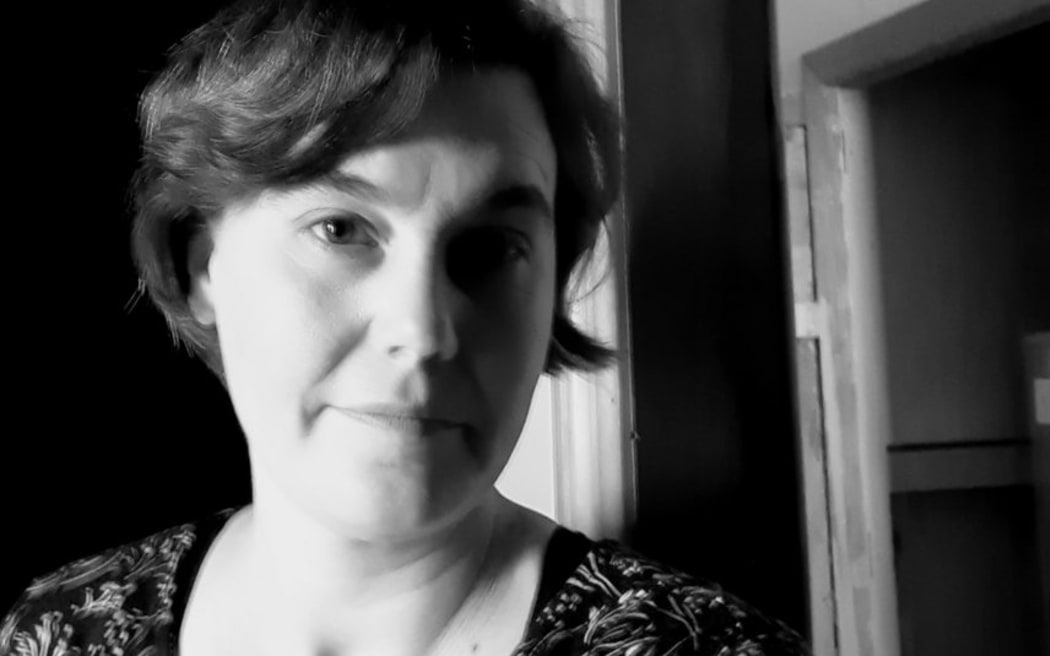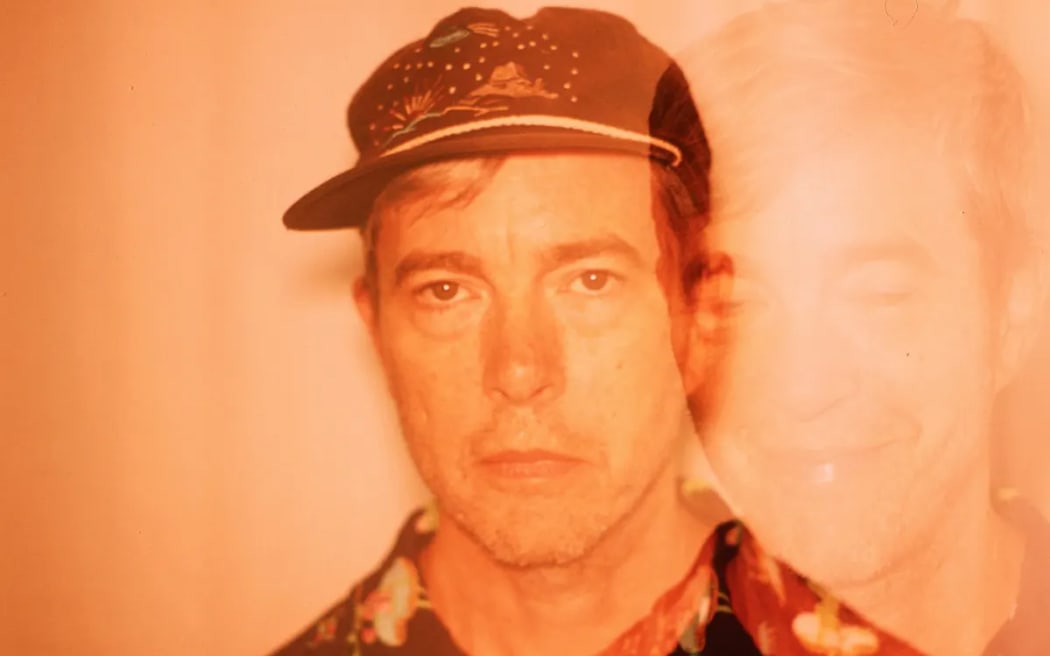Tony Stamp reviews a compilation of Dunedin songwriter Maxine Funke's lo-fi tunes, the debut LP by Kenny Beats, and is joined by Elliott Childs to discuss the latest from Bill Callahan.
Pieces of Driftwood by Maxine Funke

Maxine Funke Photo: Supplied
A compilation was released earlier this month, collecting rarities and unreleased tracks by an artist based in Dunedin, who is that rarest of things: someone who’s largely offline, and seemingly allergic to self-promotion. She’s released four albums since 2008, distributed on American and Australian labels, and while she emerged from a lo-fi, experimental background, mostly writes intimate acoustic ballads. Despite the pedigree and length of her career, she’s still largely unknown, but to those familiar with her work, Maxine Funke is one of our finest songwriters.
Aside from the quality of songs like ‘Make That Dream’ - the odd trill or blue note in her voice during otherwise unfussy melodies - they're also tonally pleasant, incorporating the sound of her fingers on the strings, the guitar’s wood, a layer of room sound and tape hiss, and her calm delivery.
‘Make That Dream’ is from 2018, while ‘South Dunedin’ is one of several previously unreleased tracks on this album, the performance so earnest that a line like “I lived here when I was a girl” is achingly emotional.
Running alongside the more traditional songs are pieces built around drum machines, or synth experiments, as well as field recordings. ‘Forest Photographer’ features birdsong over acoustic and fluctuating synth sounds, and it’s as personal as anything involving singing.
At the other end of the spectrum is something like ‘First in Spring’, the muddiness of which just enhances its vintage feel. It’s about prioritising your sense of self, I think, taking refuge in a book and shielding your eyes from what Funke calls “the beauty and the horror”.
These songs feel like tiny gifts pulled from some attic, covered in a layer of dust that has become part of the object itself. Her work has been distributed overseas and reviewed in international publications like Pitchfork, but she seems to have no ambition beyond crafting perfectly formed pieces of audio, whether they involve her guitar and voice, or aim for something more abstract and explorative. Her career is far enough along to justify this compilation, and Pieces of Driftwood - a lovely and perfectly descriptive name by the way - serves as a good entry point to her alternately fragile and sturdy songcraft.
Louie by Kenny Beats

Photo: Supplied
Over the years, the name Kenny Beats has appeared in credits on many notable hip hop releases, from rappers like Rico Nasty, Denzel Curry, and Vince Staples. His career stretches back around 10 years, and his background follows a familiar modern template - he learned a bunch of instruments in his teens and began making beats.
There’s always a weight of expectation when artists like this make a solo record - stepping into the spotlight requires creative justification beyond showcasing vocalists. And while Kenny Beats has pulled in a few favours from his famous friends, the impulse to make his debut LP Louie comes from somewhere pure - it’s an album for his dad.
His real name is Kenneth Blume III. His father, Kenneth II, was diagnosed with pancreatic cancer in 2021, and later that year, Beats realised he had a reason to make an album. It turns his dark feelings of the time into summery beat collages, with Kenneth II featuring throughout.
The subtext won’t be apparent to the casual listener, but once you know, songs like ‘Eternal’, which samples Shira Small singing about living forever (from 1974’s ‘Eternal Life’), then things start to feel a bit more bittersweet.
Stylistically Beats is clearly indebted to pioneers like J Dilla and Madlib, placing carefully chosen bars over voluminous kick drum patterns. He also employs a host of guest musicians playing live instruments and providing backing vocals, thickening each track into a richer brew.
On ‘So They Say’, a sample of 1979’s ‘Children of Today’ by Andre & Josi is sliced over a dynamic rhythm, ending up the kind of party starter RJD2 was peddling in the early 2000s.
Blume’s dad was a radio DJ, and this provides a conceptual framework for the album, threading through snippets of his voice from broadcasts decades past, as well as new recordings. In a heartwarming full-circle moment, father and son recently co-hosted a show on Apple Music Radio.
Louie was originally intended for Kenny Beats’ dad alone, but after playing it to his friends they encouraged him to release it. Even the name is personal - it’s a nickname given to him by his parents - and while the album features a string of well-known names like JPEGMafia, Slowthai, Mac DeMarco and Vince Staples, their appearances never feel like guest spots - they’re just fleeting moments in a bigger sprawl.
One exception is Remi Wolf, who provides a hook for another song with a loaded title - ‘Last Words’. Kenny’s dad is still with us, and tracks like this serve as a lovely, bittersweet gift.
REALITY by Bill Callahan

Photo: Supplied
TONY: In 1990 American musician Bill Callahan released his first album under the name Smog, a chaotic assemblage of lo-fi noise with little interest in structure or even songcraft. In the 30+ years since then, he’s released a further 13 LPs as Smog, then nine under his own name, which have seen him move further into more traditional territory like Americana and balladry, as the playing got gentler and his voice deepened into a rich baritone. Elements have remained throughout though, like acoustic guitars, and his focus on the repetitive and hypnotic.
ELLIOTT CHILDS: This is Callahan’s second release for 2022, the first being a collaboration with Bonnie Prince Billy which came out in January.
As its title suggests there is a lot about reality on this album, including snapshots of his home life, as well as a strong focus on dreams and uncertainty. Callahan makes a point of blending the two approaches in almost every song, starting with the very first track on the album, 'First Bird'.
It's a beautiful song about waking from one dream into another sort of dream - in this case, the dream of a content and happy home life with his kids. There's the image of his son walking down the hall holding his sister's hand, and the idea that his daughter rarely walks anywhere as everyone wants to carry her.
The music starts hazy and slow (as if just waking up), and becomes noticeably more cheery when he mentions his children. It also points to the album's other constant subject, death, as Callahan sings that he's waiting for the first bird to sing, but if he doesn’t hear it, it may be his last.
TONY: There’s a technique Callahan uses on that track which is the bedrock of a lot of his songwriting: he’ll linger for bars on one base chord, and only occasionally dip into a second. Like ‘First Bird’, the one he starts with on ‘Coyotes’ is particularly evocative.
That song touches on two things you raised Elliott: dreams and family. There’s the recurring “I am your lover man” (which is classic slightly-tongue-in-cheek Callahan), and the mentions of his daughter dreaming of her previous life as coyotes (plural).
I always appreciate how his songwriting has kept the simplicity of his early work, but now has room for things like that gorgeous twinkling piano.
ELLIOTT: That piano is beautiful, and it makes an appearance throughout this album, including on my next pick, 'Naked Souls'.
This one starts as a soft, almost jazzy tune with pleasant piano tinkling in the background, like a classy cocktail lounge somewhere. Something in Callahan's delivery reminds me of Joni Mitchell’s 'Coyote' - perhaps the singing interspersed with talking, which then turns into singing again at the end of the stanza.
It seems to deal with a person who is emotionally locked away to the point of potential violence - there's the line “maybe he’ll buy another gun or become a policeman or kill one”.
The title 'Naked Souls' seems to refer to people who are too emotionally available.
TONY: The lyrics about guns and police jumped out at me too, as well as the one about “stress eating in a diner” and wearing “shades that say ‘F-U’”
The most immediate song on the album might be ‘Natural Information’, which is a major chord knees-up, complete with jaunty trumpet.
It has lyrics about his daughter again, and about writing the song that he’s singing, and another recurring theme, there in the title: our relationship with the natural world.
ELLIOTT: I love the arrangement on this song. The upbeat horns and backing vocals especially give this track a kind of sunny 1970s feel.
Callahan has opened himself up a bit more to both new instrumentation and lighter subject matter. There is still some darkness here for sure, ('Lily', which is about his mother’s death, is an obvious example), but on the whole, he just seems to be having a great time being a dad, and making wry observations.
TONY: Fatherhood definitely looms large, and seems to have been a positive influence on him - there are as you say a few abrasive spots and hints at his avant-garde beginnings - but mostly this is Bill Callahan as cool dad, 32 years into his career and as listenable as ever.

